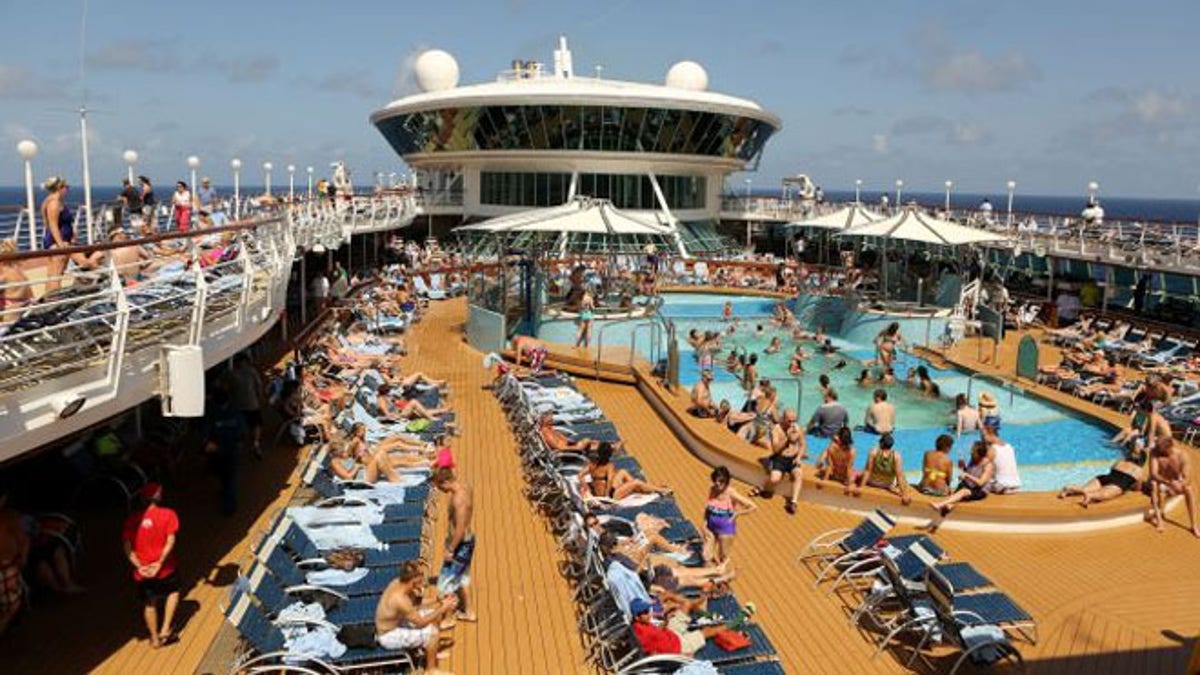
Chiron says that in addition to food, today’s cruisers should expect to pay extra for spa treatments, casinos and shore excursions, and the more luxurious, the pricier they’ll be. (Reuters)
“You can fool your consumers once, but they won’t come on board again.”
There's been a lot of talk over the last few years about whether cruises are a good value compared to land vacations. To blame for the concern: An increase in service fees or optional upgrades for things like specialty restaurants and entertainment.
But does $10 here, and $30 dollars there really add up to a vacation that no longer makes financial sense?
“Cruising provides consumers with the absolute best value for their hard-earned vacation dollars, pounds, or euros,” says chief executive officer of cruiseguy.com industry analyst Stewart Chiron. “There's still an abundance of ways to enjoy cruising without having to pay additional money beyond the cruise fare.”
He does acknowledge that if you’re willing to pay, there are even more options.
While many perceive that a cruise is an all-inclusive vacation, there are often additional fees for everything from Internet access, spa treatments, and (on many lines) both non-alcoholic and alcoholic drinks.
In recent years, specialty restaurants have been the biggest culprit for additional expenses. For example, Norwegian Cruise Line has a $39 per person service charge for Food Network star Geoffrey Zakarian's Ocean Blue. Royal Caribbean charges $45 per person fee for its whimsical Wonderland eatery on the Quantum of the Seas, and the $75 per person fee for Remy on Disney’s Dream and Fantasy has also raised some eyebrows.
Some lines, including Norwegian Cruise Line and Carnival, have also begun testing room service fees on higher end meals, and Royal Caribbean recently launched a series of room service items that incur charges as well.
Cruise line executives are confident that these options haven’t changed the fact that cruising remains a value.
“When you look at everything that a cruise includes – wonderful cuisine, outstanding entertainment, and your hotel-- and you look at the price you pay on a per day basis,” explains Vicki Freed, senior vice president of sales for Royal Caribbean, “you couldn’t find a better deal on land.”
And she balks at the idea that the lines have begun to “nickel and dime” their customers or – worse – lower the quality in the dining rooms in order to encourage guests to eat at the for-a-fee specialty restaurants.
“You can fool your consumers once, but they won’t come on board again,” explains Freed. “If they don’t see shrimp or smoked salmon, they won’t be fooled. Today, consumers have the power of social media, and they’re smart. They’re savvy.”
She cites the fine dining options at the complimentary restaurants on Quantum of the Seas [the lines latest launch until Anthem of the Seas debuts later this month] where they serve lobster, filets, and chateaubriand.
Greg Poplewko, director of product development for Carnival Cruise Lines, said that his line has also focused on a smaller number of higher quality ingredients in dining venues that don’t have an additional charge.
“The question was how we can be fiscally responsible,” he said. As a result, you’ll see more limited menus at complimentary spots such as Guy’s Burger Joint and Blue Iguana Cantina.
Chiron says that in addition to food, today’s cruisers should expect to pay extra for spa treatments, casinos and shore excursions, and the more luxurious, the pricier they’ll be.
Lines are offering elaborate and expensive shore excursions—from private tours to activities like flightseeing and helicopter rides— which can feel out of reach for the budget-conscious traveler.
But extra fees exist for more mundane things. Internet access, for example, generally comes with a fee, though the trend is that as the technology improves those rates are actually going down.
Also, while access to the gyms on cruise ships is included, fitness classes—from spinning to yoga, pilates, and boot camp—are usually extra.
“I bought back to back sailings on a cruise through Asia,” explains cruise line customer Gayle Brammer of Fort Lauderdale. “And I couldn’t believe they wanted to charge me an additional $11 for a yoga class. Really? After the amount of money I spent?”
Carolyn Spencer Brown, editor in chief of CruiseCritic.com, doesn’t blink at these expected additional charges.
“Every time I stay in a hotel, even fabulous hotels, I’m reminded of the value that cruises represent. Certainly, the more inclusive nature of a cruise, in which entertainment, kids clubs, twice-daily cabin service, three square meals and then some, are part of the fare you pay, as is transportation from port to port,” Brown says.
Still, there’s no denying that some passengers balk when they see new options. A good rule of thumb to remember is that anything that includes alcohol (such as wine pairing classes or rum tastings) or food (such as cupcake decorating classes) usually has an additional fee attached.
She recommends that cruisers who may feel confused do their research before they sail on what is and isn’t included, so they aren’t surprised when they board. In order to help consumers sort through the rates and policies, Brown refers travelers to an online tool for assistance.
“Our sister site, Independent Traveler, has a nifty travel budget calculator that helps travelers factor in extra costs on a trip.”
Yet, most of the activities offered during a day at sea—from lectures to book signings, tours and entertainment—are complimentary. This includes stage shows, comedy acts, movies, and music venues, as well as the technology-based On Demand entertainment in cabins.
“In no other part of travel do you see such great bundling of aspects of a trip,” explains Brown. “Sure, you can pay out of pocket for alternative restaurants, spa treatments, gambling sprees, cocktails, and shore excursions, but it’s entirely your choice.”
